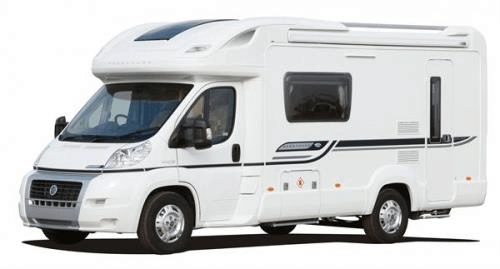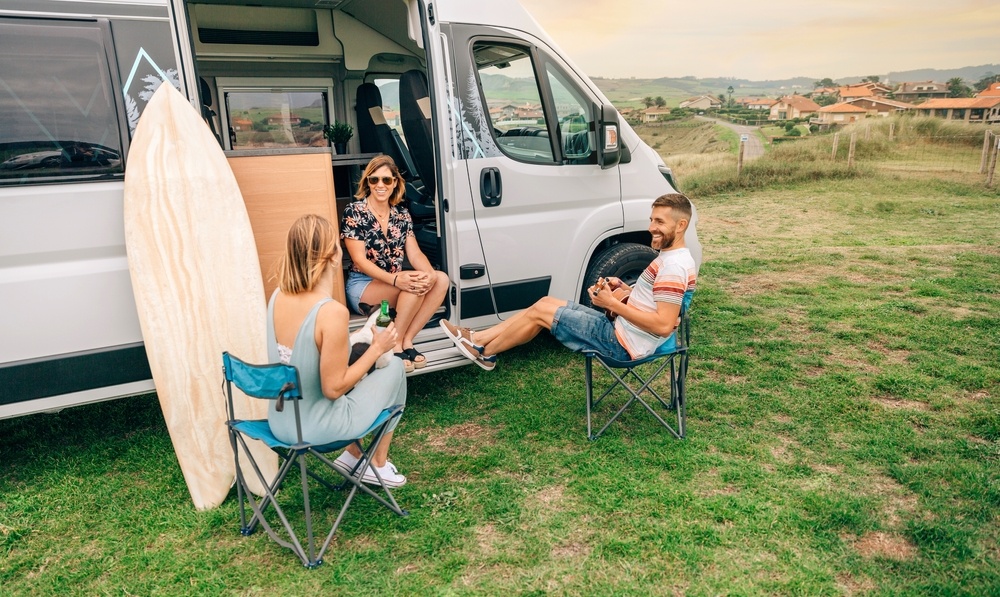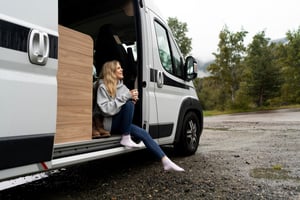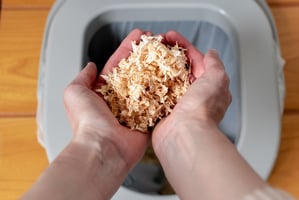Your motorhome is more than just a vehicle; it’s your ticket to adventure, a cosy home on wheels,...
Ah, now this is a topic that sees many a lengthy thread in the online camping forums! What happens if you fancy a drink inside your motorhome after parking up for the night? It might seem like a perfectly harmless thing to do, just minding your own business with a glass of wine at the end of the day, but could you actually get into trouble with the police?
It seems everyone has a different opinion, and there’s always someone who ‘knows someone who knows of someone’ that got into trouble having a beer inside their motorhome, but is it really the case? And if so, what might the consequences be? Let’s take a look below.
First of all - what does the law say?
The key piece of legislation to be aware of here is the Road Traffic Act 1988, which makes it a general offence to be ‘drunk in charge of a motor vehicle’. This means that even if your motorhome is stationary and you have no intention of driving, you could still get in trouble if you’re over the alcohol limit and considered to be ‘in charge’ of the vehicle. The current drink drive limit can be found on this government webpage - note that the levels are different for Scotland to the rest of the UK - so it’s good to know what this is for the different countries.
Section 5 of the Act states that if a person drives or attempts to drive a vehicle on a road or other public place, or is in charge of a vehicle on a road or other public place, after consuming so much alcohol that the proportion of it in his breath, blood or urine exceeds the prescribed limit he is guilty of an offence.
However…
It is a defence for a person charged with an offence above to prove that at the time he is alleged to have committed the offence the circumstances were such that there was no likelihood of his driving the vehicle whilst the proportion of alcohol in his breath, blood or urine remained likely to exceed the prescribed limit.
So, it seems there is a certain emphasis here for the police to both prove that a person is above the legal limit and that there was a likelihood of the vehicle being driven.
Section 4 of the Act - concerning driving whilst being unfit through drink or drugs - is slightly different in that the police need to be able to prove a person is impaired (read: unfit to drive) as a result of a substance which they’ve consumed.
So that is what the law says about being over the limit or being deemed to be unfit to drive.
Which leads us nicely onto the other bit of Section 5 of the Act…

What does ‘in charge’ mean?
According to the Crown Prosecution Service, prosecutors should be mindful of the need to distinguish between ‘attempting to drive’ and being 'in charge’. An attempt must be ‘more than merely preparatory' to the act of driving. According to the CPS, a person remains 'in charge' of their vehicle until they have transferred control to another person, for example by handing over the key or having gone some distance from the vehicle, in such circumstances that they had no intention of re-asserting control of it.
So going on this, factors that could potentially indicate you’re in charge of your motorhome include:
- Sitting in the driver’s seat, even if the engine is off.
- Having the keys within easy access, such as in your pocket or on a nearby table.
- Being in it while parked on a public road or lay-by where the motorhome could theoretically be driven off with some ease.
It seems here, then, that to prevent being seen as ‘in charge’ of your motorhome at a given point, you really need to look like you are definitely not thinking about driving it anywhere soon.
When drinking, it is important to consider this, too - you might not be intending to drive your motorhome of an evening, but what would you then do if you had to move it? Perhaps if you were asked to move location by the police, or a flood started and you needed to move from the area quickly? It’s not like being in a house - it’s a home on wheels, and sometimes those wheels need to start turning even if that wasn’t the original plan.
So what are the penalties if you’re found guilty of being ‘drunk in charge’?
If you’re found to be ‘drunk in charge’ of your motorhome, the consequences can be severe, albeit potentially less so than that of drink driving.
They are as follows:
- A fine of up to £2,500
- 10 penalty points on your driving licence
- A potential driving ban
- In some cases, imprisonment for up to three months.

Some key points to consider
So, no-one is saying you can’t have a drink in your motorhome, but if you plan to do so, it’s important to take precautions to minimise the risk of breaking the law. You’ll need to be able to show that you don't have any intention of driving the motorhome whilst over the limit. Here’s some ideas to consider:
Secure your keys
Store your keys out of reach, such as in a locked cupboard or in someone else’s possession, to demonstrate that you have no intention of driving.
Park safely and legally
Using a designated campsite or private property ensures you’re not parked in a location where your vehicle might be considered as likely to be on the move. If staying in a pub carpark or similar, tell the landlord of your intention to stay as they can then vouch for your intentions.
Avoid the driver’s seat
Stay away from the driver’s seat entirely, even if you’re just relaxing, as this could be interpreted as being ‘in charge.’ You could also still be deemed to be ‘in charge’ of the vehicle when sat in the passenger seat, too, remember.
Close up for the night
Close the windscreen blinds, put on a steering lock, and place items such as piles of clothes on the front seats to show they’re not in use.
Put the awning up
You could also make it look like you’re staying put from the outside, too.

Some final thoughts…
This can all seem like a bit of a grey area, can’t it! Theoretically you can be prosecuted for being drunk in charge of a vehicle without driving it, but you may have a defence if you can show that you have no intention to drive while over the limit. It may also depend on the police’s point of view at the time, and no doubt they will assess each scenario individually as there are so many factors at play.
When in doubt, it’s always better to err on the side of caution when drinking, if there’s even a hint of a chance you might have to take to the wheel. After all, no drink is worth the potential cost of a fine, a driving ban, or much worse.
While enjoying a drink in your motorhome is considered by many as being part of the appeal of the lifestyle, it’s essential to understand the legal implications. By taking simple precautions such as those we’ve listed, you can reduce the risk of any legal trouble and enjoy your downtime without worrying.
Disclaimer: This is for information only. We’ve taken every care to ensure that the information within this article is correct, but please make sure to keep up to date with the legislation and guidance on this topic as things could change.







.jpg?height=200&name=shutterstock_1521572708%20(1).jpg)